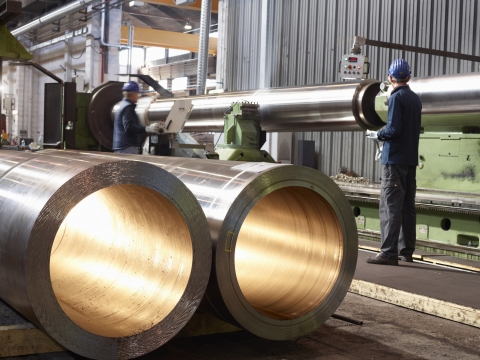On 9 November, the Consultative Commission on Industrial Change (CCMI) met for a remote debate on the EU steel industry. The debate, chaired by Pietro Francesco De Lotto, the new CCMI president, focused on the issues of overcapacity and decarbonisation in the international steel industry. The speakers addressed the challenges facing the European steel industry: the post COVID-19 recovery plan, decarbonisation of production processes, EU safeguard measures and trade.
Steel is an essential good in all developed and developing countries. The COVID-19 pandemic has raised questions about global supply chain dependence, especially when many countries are dependent on one country alone.
The overcapacity production of the Chinese steel industry is a source of concern, as China now dominates more than half of the world’s market. In 2018, the United States enacted protectionist taxes so that the American economy was less dependent on Chinese materials. This measure ended up severely harming the EU market, as the USA is an important customer for steel produced in the EU.
At the same time, nations around the world are making efforts to reduce their greenhouse gas emissions, and an increasing number of initiatives are being put forward to move towards a circular economy.
“We need to ensure the competitiveness of steel sectors that uphold the environmental standards necessary for this transition but that are facing competition from other regions of the world where such standards are non-existent or inadequate,” said Mr De Lotto, as he concluded the debate. ”This also applies to standards on working conditions and labour rights.”
Therefore, the EESC calls for a level playing field between European and third-country exporting producers. (tk/ks)
eesc.europa.eu


















